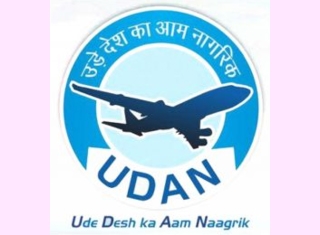Out of the 371 commenced routes, only 112 routes (30 per cent) successfully completed the full concession period of three years.
The CAG report also highlighted that among these 112 routes, only 54 routes (seven percent of the awarded routes) connecting 17 RCS Airports managed to sustain operations beyond the three-year concession period, as of March 2023.
Under UDAN, airlines were invited to propose connectivity to underserved/unserved airports in October 2016 for the first time.
The report noted: “Up to March 2021, three rounds of bidding for UDAN 1, 2, and 3 were completed and are included in the scope of this audit. In the first round of bidding, proposals for 132 RCS routes were received and awarded, connecting 45 underserved/unserved airports.
“In the second round, 228 fixed-wing routes and 83 heliport routes connecting 30 unserved/underserved airports and 31 heliports were awarded. During the third round of bidding, 305 fixed-wing routes and 26 water aerodrome routes connecting 23 underserved/unserved airports and 10 water aerodromes were awarded,” the report said.
The CAG report found that while the response to the scheme was positive — passenger travel on RCS routes increased from 2.63 lakh in 2017-18 to 24.97 lakh in 2022-23 — implementation improvements were necessary based on audit observations.
The report presented 16 recommendations to enhance the scheme’s implementation in the future.
The report recommended devising a suitable mechanism to assess route feasibility for sustainable long-term operations and identifying unserved/underserved airports, taking into account factors such as stage length, alternative transportation options, terrain, socioeconomic conditions, and tourism potential.
It also pointed out that the Ministry of Civil Aviation and the Airport Authority of India did not undertake an exercise to identify potentially eligible heliports.
“Most of the heliports identified for operations based on helicopter operators’ proposals either remained unutilised/underutilised or saw discontinued RCS operations,” stated the audit report.
Regarding the collection and remittance mechanism of the Regional Air Connectivity Fund (RCF) levy, the audit report criticised the absence of clear rules.
It suggested the ministry establish a monitoring mechanism to ensure collected RCF levy from passengers does not exceed the amount to be remitted to the government or become a profit source for airlines.
Additionally, the report pointed out delays in remitting dues by airline operators and recommended introducing penalties for such delays according to the Draft Standard Operating Procedure.
The report also highlighted significant delays in the revival/development of identified RCS airports, despite budgetary support sanctioned by the Cabinet Committee on Economic Affairs in March 2017.
“Out of the 116 airports/heliports/water aerodromes where expenditure was incurred, operations commenced at only 71 (61 per cent), while operations could not begin or were discontinued at 83 airports/heliports/water aerodromes despite an expenditure of Rs 1,089 crore,” the report noted.
–IANS
ssh/pgh






